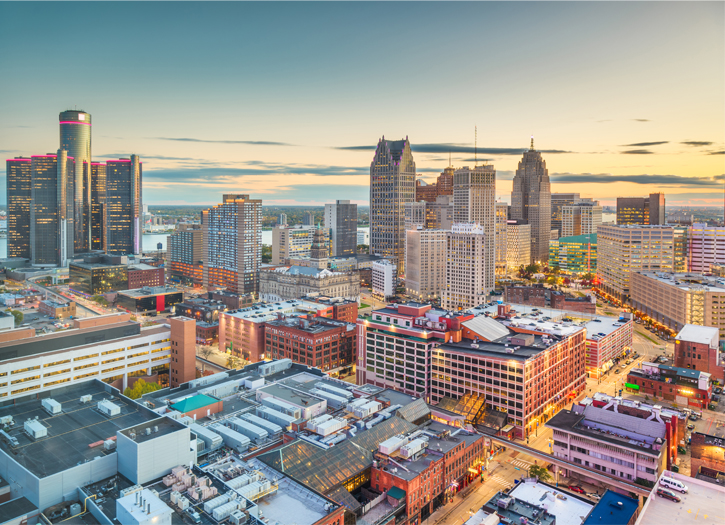The COVID-19 pandemic was first confirmed in the U.S. state of Michigan on March 10, 2020. As of September 26, 2020, 121,427 cases have been confirmed, causing 6,723 deaths. As of September 25, 95,051 people in the state have recovered from COVID-19. The state legislature approved $125 million to aid in relief efforts on March 17.
The state legislature allocated an additional $150 million for medical supplies and personal protective equipment for hospitals on March 30. The city of Detroit has 20% of the total cases and 25% of the deaths.African Americans make up 31% of the state’s total cases and 40% of deaths.The national coronavirus outbreak triggered a state of emergency response at the state level on March 10 followed by Governor Gretchen Whitmer announcing the closure of all K–12 school buildings until April 5. Face-to-face instruction for all Michigan schools was later suspended for the remainder of the 2019–20 school year, with guidelines implemented to transition students to home learning formats.
Several of the restrictions on businesses and medical facilities were lifted in late May. On May 22, Governor Whitmer extended the stay-at-home order until June 12 and the state of emergency until June 19.Governor Whitmer later extended the state of emergency another month until July 16. It was again extended until August 11. A month later Whitmer issued a new order which expires September 4. On August 14, Governor Whitmer announced four million masks will be distributed to vulnerable populations in Michigan. Movie theaters and other entertainment venues will be allowed to re-open on October 9.
As of March 25, nine Detroit Police Department employees have tested positive for COVID-19, while 280 others have been placed in quarantine. On March 24, one death was reported within the department, a 38-year-old civilian dispatcher. A second death was reported on the same date, a commanding officer within the Department who died from complications with the virus. Chief James Craig tested positive for the virus and was under quarantine for over two weeks.
On February 3, the Michigan Department of Health and Human Services (MDHHS) activated its Community Health Emergency Coordination Center to support local and state response to the coronavirus .On February 28, the State Emergency Operations Center was activated by Governor Gretchen Whitmer to assist with coordination. On March 3, the Governor created four COVID-19 Task Forces: State Operations, Health and Human Services, Education, and Economy/Workforce. A state of emergency at the state level was declared by the Governor on March 10 (Executive Order 2020-04).
On March 23, Governor Whitmer issued a statewide stay-at-home order, starting the morning of Tuesday, March 24, and lasting for at least three weeks, until April 13. It was later extended until April 30, and then re-extended until May 15, and then until May 30. “Stay Home, Stay Safe”, Executive Order 2020–21 directed all businesses and operations to temporarily suspend in-person services that are not necessary to sustain or protect life. The order directed residents to remain “in their homes unless they’re a part of an essential workforce, engaged in an outdoor activity, or performing tasks necessary to the health and safety of themselves or their family.
On March 19, the Michigan Strategic Fund unanimously voted to approve a $20 million economic relief program meant to help struggling small businesses affected by the pandemic. The Michigan Unemployment Insurance Agency has processed over 1.7 million applications as of May 13, with 1.375 million people receiving benefits. The state has paid $5.62 billion in benefits since the state of emergency was declared two months prior. As of June 19, the Michigan Unemployment Insurance Agency has disbursed $11.4 billion to two million people since the coronavirus pandemic reached the state.
The NCAA also canceled all of its remaining winter tournaments for the academic year, including the 2020 NCAA Division I Men’s Ice Hockey Tournament—whose national semi-finals and championship were scheduled to be hosted by Detroit. All spring seasons were canceled as well.On June 1, Governor Whitmer signed an executive order that allows college teams to begin workouts and practice sessions for fall sports seasons.







Add Comment